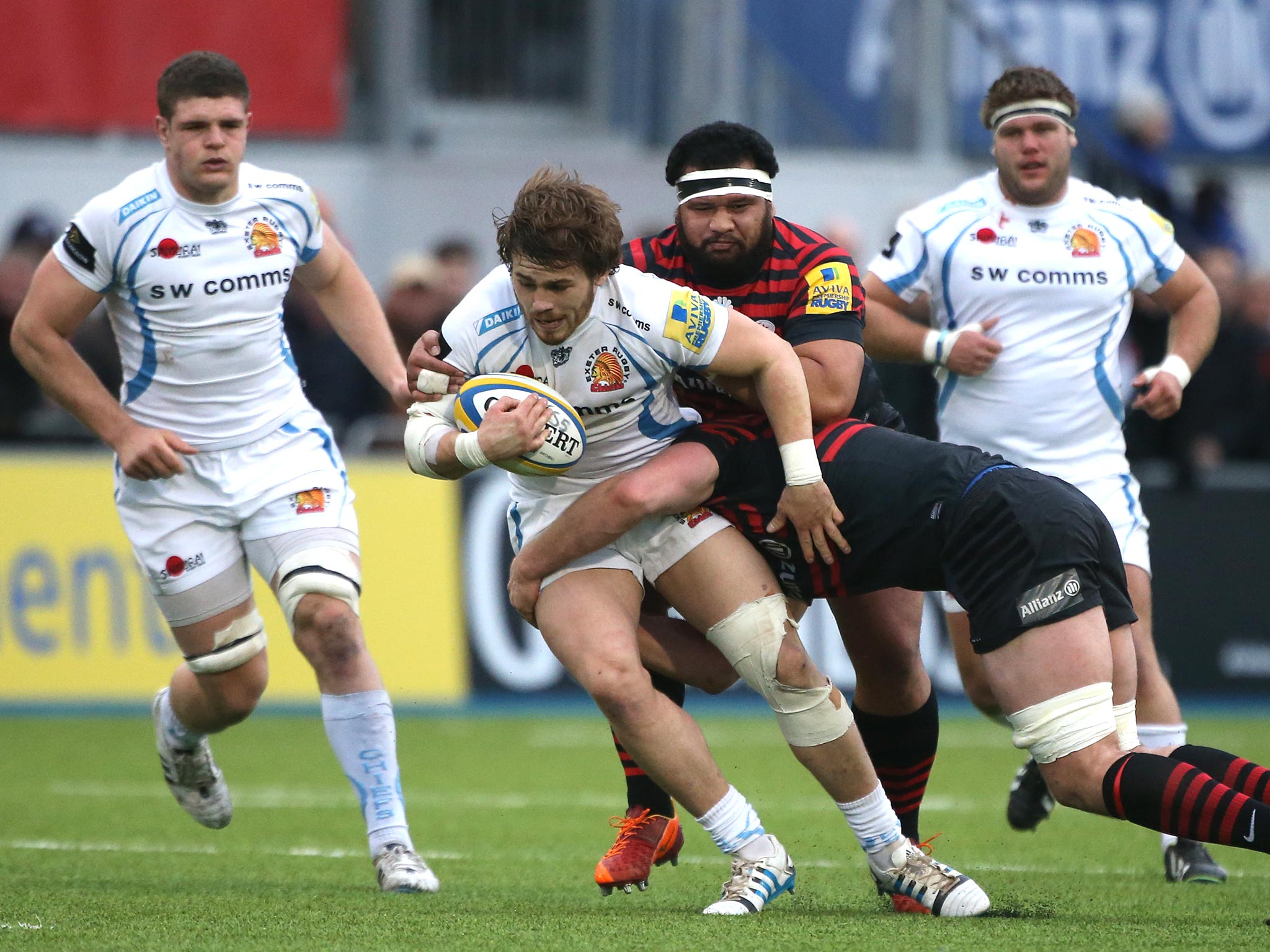Six Nations 2014: Chiefs’ star Luke Cowan-Dickie worth weight in sausages

They sponsor almost everything to within an inch of its life down Sandy Park way – even the sin-binnings carry a name check for one financial backer or another – but the marketing opportunities have yet to be fully exhausted.
The young Exeter hooker Luke Cowan-Dickie is currently “supported” by a local sausage producer (now there’s an eye-watering thought) but if his weekend performance against London Irish was a reliable indicator of the rugby he will play over the next few years, we can expect some slightly larger businesses to express an interest. Like Google, or Microsoft.
It would not be strictly accurate to laud the 20-year-old Cornishman as the stand-out performer in a comprehensive 18-0 victory: Tom Johnson, the multi-tasking back-rower, had an absolute belter, to the extent that he deserves a seat on the England bench for this weekend’s Six Nations humdinger with Wales at Twickenham. But it was Cowan-Dickie who made the most interesting statement.
The energy of his work in the loose, allied to an instinctive opportunism that turned 50-50 contests for possession on the floor into foregone conclusions, fully justified the faith expressed in him by Graham Rowntree, the England forwards coach.
“Are there still areas of his game that need work? Of course there are: he’s 20.” So said Rob Hunter, who performs the Rowntree role at the Devon club. “But he has a huge amount of potential. This was a must-win game for us, so to throw someone of Luke’s age into the side for a first Premiership start was a big step.” The soft smile of satisfaction on Hunter’s face suggested he was pleased the step had been taken.
Cowan-Dickie’s throwing at the lineout was not unerringly accurate: the further he attempted to propel the ball, the less likely he was to hit the right man – or, indeed, anyone at all. But he is hardly alone in struggling with his sense of direction from the touchline: ask Tom Youngs of Leicester, who played Test rugby for the British & Irish Lions in Australia last summer.
Where Cowan-Dickie scores in “point of difference” terms is in his combination of pace, broken-field footballing skill and implacability at the tackle area.
After a flat first half – so much for the notion that this might be a fascinating game of thrust and counter-thrust – it was Johnson who broke things open, returning London Irish clearance kicks with big rates of interest from the restart. Luke Arscott, the Exeter full-back, capitalised by probing a gap between James O’Connor, the quick-witted Wallaby back, and Leo Halavatau, a front-row forward significantly slower in all respects, and sending Phil Dollman over for the opening try. Johnson then made another telling contribution, plucking Shane Geraghty’s high kick out of the air to instigate a sweeping move that resulted in Ian Whitten’s try in the right corner.
It was a miserable day for the visitors , not least for the England wing Marland Yarde, who was making his first start after a long injury lay-off and was keen to catch the eye before returning to the red rose squad for the Wales build-up. The Harlequins-bound player sought involvement from first minute to last, but he was reduced to an advance state of exasperation long before the final quarter – hence the regular bouts of frustrated arm-waving, which may or may not have gone down well with his colleagues.
Still, the England coaches will be pleased to see him back. In a season or two, they will probably be every bit as pleased to see Cowan-Dickie.
Join our commenting forum
Join thought-provoking conversations, follow other Independent readers and see their replies
Comments